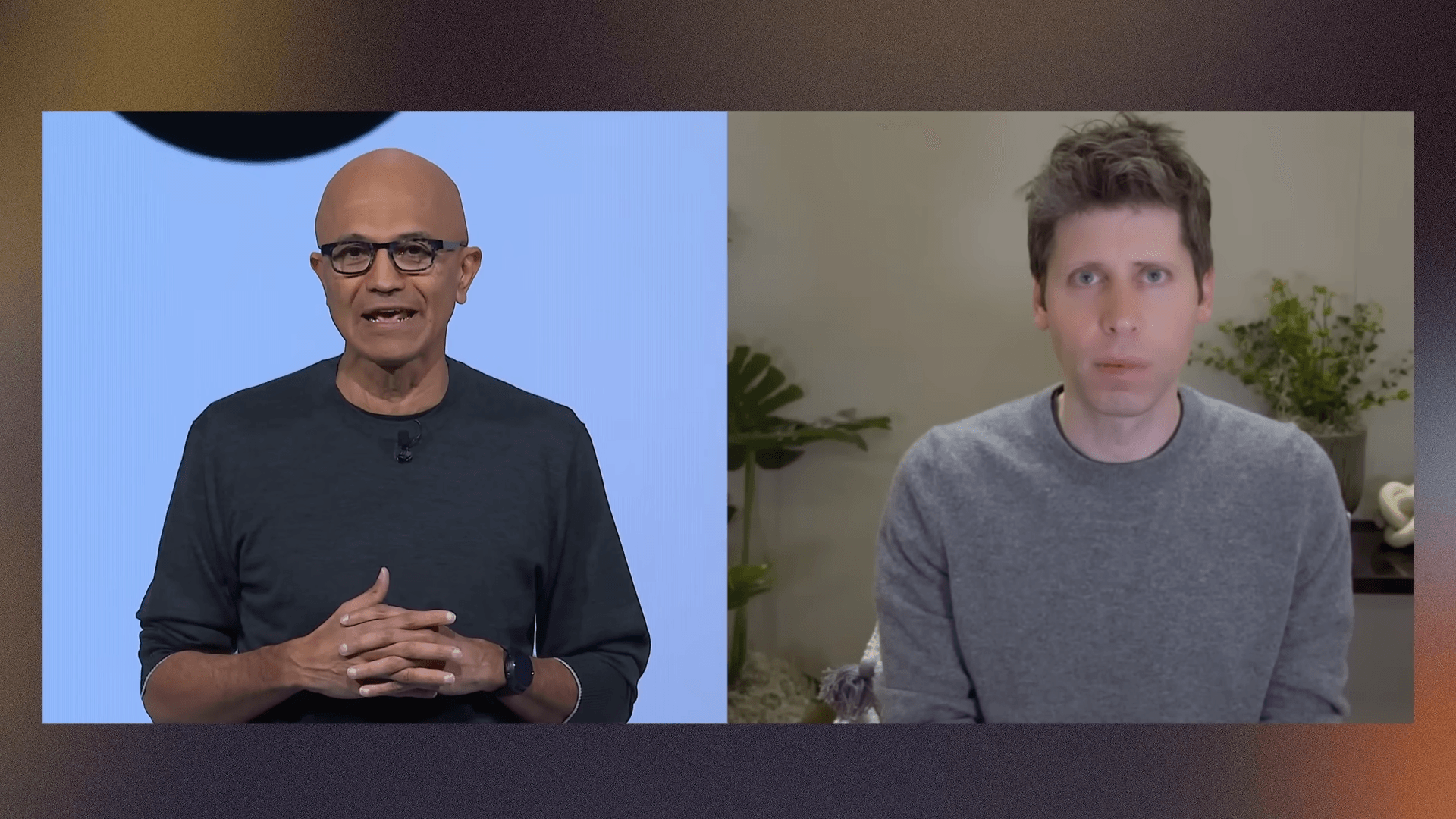Microsoft is reportedly barred from building its own AGI until 2030 under its contract with OpenAI

The largest partnership in the AI industry is on shaky ground. According to a report from The Information, Microsoft is blocking OpenAI's restructuring plans because it wants to remove a contract clause related to artificial general intelligence (AGI).
Tensions between OpenAI and Microsoft have escalated sharply, centered on OpenAI's proposal to restructure its for-profit arm in preparation for a potential IPO. Microsoft, OpenAI's biggest outside investor, is withholding its approval and using its veto power as leverage. There have already been rumors that OpenAI is considering legal action against Microsoft for anti-competitive behavior.
At issue is a 2019 contract clause that allows OpenAI to cut off Microsoft's access to its technology if the board determines they've achieved AGI. OpenAI has so far refused to drop this clause. OpenAI defines AGI as systems that outperform humans at most economically valuable work.
AGI clause could become an ASI clause
The AGI clause, "everyone laughed at" back then, is now a major sticking point. It was originally meant to ensure that potentially world-changing technology wouldn't land solely in the hands of a single profit-driven company. The Information reports that the CEOs are clashing over the issue: OpenAI's Sam Altman suggests AGI is within sight, while Microsoft's Satya Nadella calls this "AGI hype" and "nonsensiical benchmark-hacking." Nadella argues that the real test would be if global GDP grew by 10 percent a year.
The report also reveals another AGI-related clause: during Microsoft's $10 billion investment in 2023, the original clause was expanded to include a "Sufficient AGI" definition. Under this, Microsoft's exclusive rights would end if OpenAI's board determines its AI is capable of generating the maximum profits their investors are entitled to - a figure that was $92 billion for Microsoft at the time but is now higher. The AI doesn't need to actually generate these profits for the clause to trigger. However, Microsoft must approve the methodology for making this determination.
Another contract detail, reported by the Wall Street Journal, raises the stakes: Microsoft is barred from developing its own AGI until 2030, according to sources familiar with the matter.
Alongside approval for the restructuring, OpenAI is also seeking a reduction in the 20 percent revenue share it pays Microsoft, The Information reports. Microsoft, meanwhile, wants to eliminate the AGI clause and extend its intellectual property rights with OpenAI beyond the 2030 contract expiration. One possible compromise under discussion is replacing AGI with "artificial superintelligence" (ASI), effectively pushing the threshold further into the future.
Microsoft struggles to replicate OpenAI's models
The partnership, which produced high-profile products like GitHub Copilot, has evolved into open rivalry in recent years. The report points to several turning points: ChatGPT's unexpected success overshadowed Microsoft's own AI launches, and by March 2023, the two companies were competing for the same enterprise customers. Another setback for Microsoft came when OpenAI's more efficient "Arrakis" model failed. Arrakis was supposed to save Microsoft money when running OpenAI models in products like its Bing chatbot. After Arrakis fell through, Microsoft began developing its own cheaper alternatives, including the Phi model family. Meanwhile, OpenAI turned to competitors like Oracle and Google for extra server capacity, signing cloud deals outside of Microsoft.
Intellectual property access remains another persistent sticking point. To reduce its dependency, Microsoft hired Inflection AI CEO Mustafa Suleyman, a key OpenAI competitor. But Suleyman quickly ran into trouble trying to replicate OpenAI's models. He reportedly complained for weeks that OpenAI was not meeting its contractual obligations, even voicing his frustration directly to then-CTO Mira Murati. Selective information sharing by OpenAI made it difficult for Microsoft teams to understand techniques like "chain of thought" reasoning. While executives from both companies are still meeting daily, Microsoft is now threatening to simply stall negotiations. This would derail OpenAI's IPO ambitions but preserve Microsoft's rights to revenue and future profits.
AI News Without the Hype – Curated by Humans
As a THE DECODER subscriber, you get ad-free reading, our weekly AI newsletter, the exclusive "AI Radar" Frontier Report 6× per year, access to comments, and our complete archive.
Subscribe nowAI news without the hype
Curated by humans.
- Over 20 percent launch discount.
- Read without distractions – no Google ads.
- Access to comments and community discussions.
- Weekly AI newsletter.
- 6 times a year: “AI Radar” – deep dives on key AI topics.
- Up to 25 % off on KI Pro online events.
- Access to our full ten-year archive.
- Get the latest AI news from The Decoder.